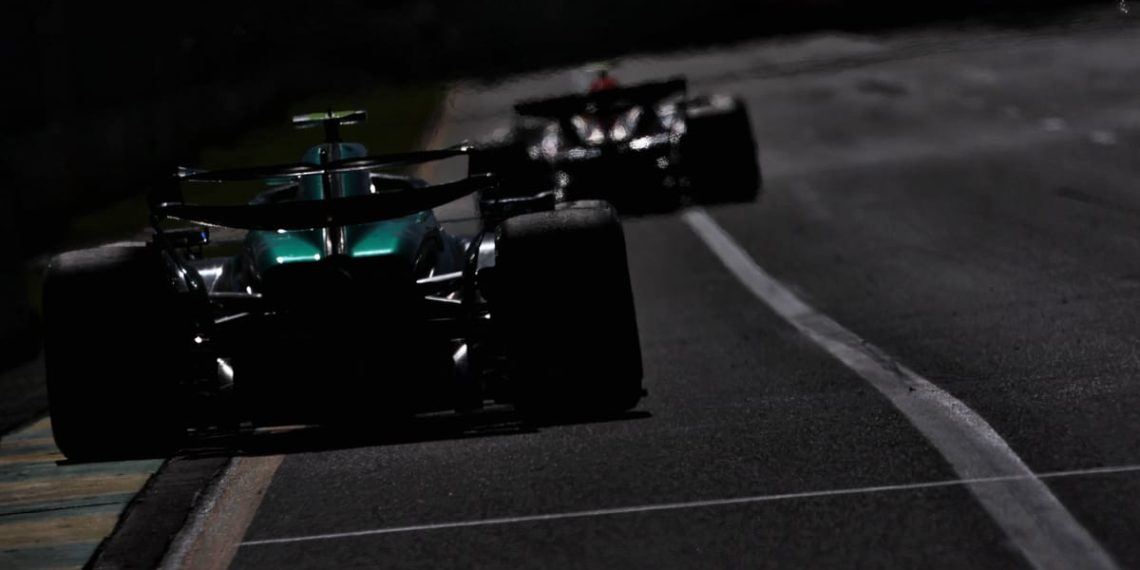The Formula 1 points system has undergone several changes over its 74-year history, and the sport is once again considering a new distribution. Points play a crucial role in determining the F1 driver’s world championship, the F1 constructor’s world championship, and the amount of prize money each team receives at the end of the season.
Since 2010, F1 has used a system where the top 10 finishers in a grand prix receive points as follows: 1st place receives 25 points, 2nd place receives 18 points, 3rd place receives 15 points, 4th place receives 12 points, 5th place receives 10 points, 6th place receives 8 points, 7th place receives 6 points, 8th place receives 4 points, 9th place receives 2 points, and 10th place receives 1 point. However, drivers finishing 11th or below do not receive points.
In sprint races, the current winner earns 8 points, while the 8th place finisher receives 1 point. The points awarded for sprint races are as follows: 1st place – 8 points, 2nd place – 7 points, 3rd place – 6 points, 4th place – 5 points, 5th place – 4 points, 6th place – 3 points, 7th place – 2 points, and 8th place – 1 point.
During grand prix races, drivers within the top 10 have the opportunity to earn an additional bonus point if they set the fastest lap. However, if a driver outside the top 10 sets the fastest lap, they will not receive the bonus point, but will prevent any driver within the top 10 from receiving it. It is important to note that no bonus point for the fastest lap is available in sprint races.
Throughout the 21st century, three different points systems have been implemented. Before 2003, only the top six finishers in a grand prix would receive points. The winner would receive 10 points, the second-place finisher would receive 6 points, and the third to sixth-place finishers would receive 4-3-2-1 points respectively. From 2003 to 2009, the top eight finishers would receive points, with the second-place finisher receiving 8 points, just two less than the winner. The points distribution during this period was 10-8-6-5-4-3-2-1.
In 2010, the points system was expanded to create a larger gap between first and second place (now a seven-point difference) and to take into account the expanded grid of 24 cars and the increased reliability of the cars. This expansion allowed points to be awarded to the top 10 finishers.
This year, the F1 Commission has been discussing possible changes to the points system, including proposals to expand the number of points scorers beyond the top 10. These proposals include awarding points to the top 12 finishers or even to all classified drivers. The final decision on any changes will be made at the next F1 Commission meeting in July.
There are cases where full points are not awarded in a grand prix. If less than two laps of the race have been completed before the race is stopped, no points will be awarded. If the race leader has completed more than two laps but less than 25% of the scheduled race distance, the top five finishers will receive points on a scale of 6-4-3-2-1. If the race leader has completed more than 25% but less than 50% of the scheduled race distance, the top nine finishers will receive points on a scale of 13-10-8-6-5-4-3-2-1. Finally, if more than 75% of the scheduled race distance has been completed, full points will be awarded.
© 2024
A new record was set yesterday in the world of sports when Brazilian athlete Pedro Silva won the gold medal at the Tokyo Olympic Games. Silva’s victory in the 100-meter race event puts him on top of the podium and makes him one of the fastest athletes in the world.
Silva, 25, showed exceptional performance during the competition, surpassing his opponents with impressive speed. With his victory, he becomes an icon of Brazilian athletics and an inspiring example for young athletes across the country.
“I am very happy and proud to have won this medal for Brazil,” Silva said in an interview after the race. “It was hard work and dedication that brought me here, and I am very grateful for all the support I received.”
Silva’s achievement is an important milestone for Brazil, which now has an Olympic champion in the 100-meter race. His victory also highlights the strength and talent of Brazilian athletes, who continue to excel in international competitions.
The next step for Silva is to prepare for future competitions and continue to hone his skills. With his determination and talent, he may achieve even more victories and set new records in the future.
Congratulations to Pedro Silva for this incredible achievement and for representing Brazil so well at the Tokyo Olympic Games. His victory is a source of pride for all Brazilians and a reminder of the power of sports to unite and inspire people.










